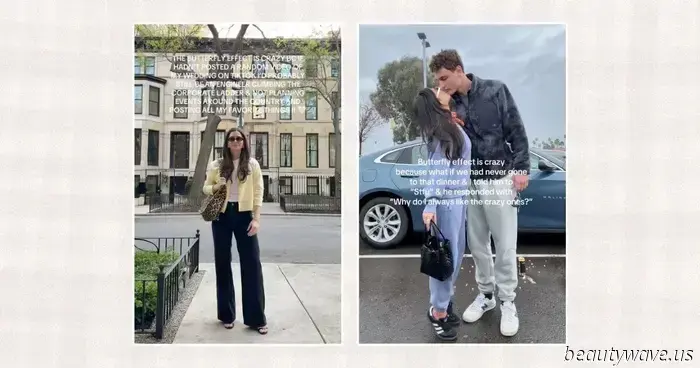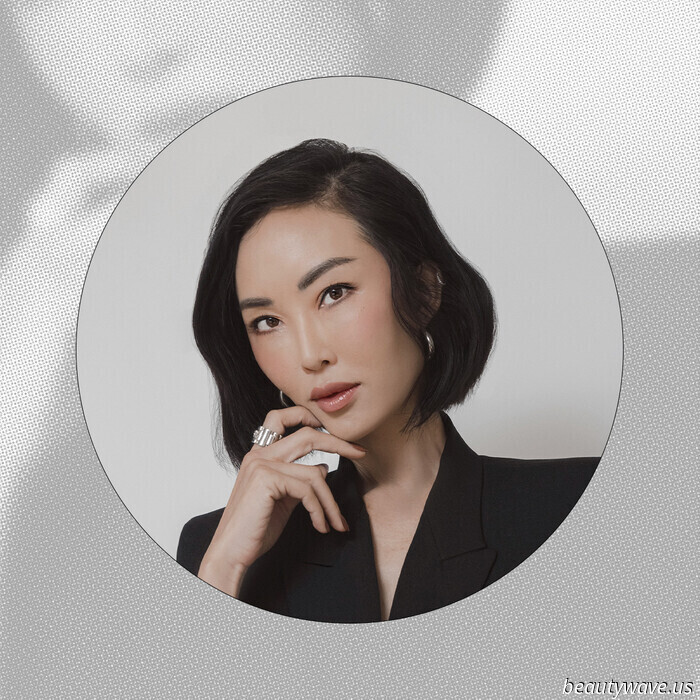
There is a lot of debate surrounding the Butterfly Effect—here’s what people are overlooking.
A story that begins with “You’re never going to believe what happened” is my weakness. It captures my interest, pulls me in, and leaves me hooked on the chaotic details. When a tale involves something going horribly wrong only to later result in something great, it feels like I have a front-row seat to an amazing film. (I’ll admit, I enjoy a bit of drama.) So, as you can imagine, when the “butterfly effect” trend started trending on TikTok, I couldn't help but dive into my screen time. My FYP was flooded with chaotic stories that piqued my curiosity, but it was the conversations in the comments that kept me awake past my bedtime.
We know that when trends emerge, they can quickly lose their essence, and that’s precisely what’s been happening with the “butterfly effect.” If you search the hashtag, you’ll find that many of the videos don’t actually illustrate the butterfly effect at all. The remaining ones? They feature individuals complaining about others misinterpreting it. For instance, TikToker Carmen Vitali labeled her video “PSA: The Butterfly Effect is fluttering over people’s heads,” using the hashtag #geteducated.
Before delving deeper, let me clarify what the butterfly effect truly means. Originating from the notion that a butterfly flapping its wings in one area could potentially cause a tornado on the opposite side of the globe, the concept emphasizes “how a minor change in the early stages of a system can lead to significant, unpredictable consequences over time.” Vitali cites the scenario of taking a different route to work one day, causing a car accident, and subsequently marrying the person involved. This seemingly trivial change resulted in a major outcome. Expressing sentiments like “The Butterfly Effect is wild because what if I hadn’t gone on that Hinge date,” as Vitali clarifies, does not reflect the butterfly effect, nor does stating “The Butterfly Effect is wild because what if we never met.”
A considerable number of the 130k videos tagged with the hashtag illustrate how users met their current partner or best friend, claiming it as an example of the concept. While Vitali is correct that most people have misinterpreted the butterfly effect’s theoretical framework, I can’t help but ponder: Have we taken the theories a bit too far? Can’t we just enjoy a good story? I genuinely believe that everything unfolds as it’s meant to, but I also think we don’t always need a reason for it.
“TikTok generates new theories more rapidly than we can comprehend, making it unsurprising that there’s confusion.”
The primary reason this concept is going viral isn’t due to its novelty (there’s literally a movie titled The Butterfly Effect starring Ashton Kutcher from 2004). It has gained traction because people can’t stop debating it in the comments. Users have made remarks like “that’s the invisible string theory” or, my personal favorite, “that’s the burnt toast theory.” To which I respond, what? TikTok produces new theories faster than we can make sense of them, so it’s no surprise that no one seems to know what they’re discussing.
Now, I want to clarify that I love hearing about how countless individuals have memorable stories about how they met their partners, found the ideal job, or discovered the perfect apartment in the city. However, in a rather exhausting twist, what began as a charming trend has devolved into a contentious debate over who is correct and who is mistaken. Happy narratives are being torn apart by a slew of “one-uppers,” posting comments like “that’s NOT the butterfly effect, but my story is…” We must remember that we don’t know everyone’s entire story and certainly can’t grasp it in a 15-second video. Their tale might partly represent a butterfly effect, but it’s equally likely that it doesn’t. So when that’s the case, do we really need to argue about it?
TikToker Kat Marie Samson faced criticism for her video but responded brilliantly: in reply to a “that’s not the butterfly effect” comment, she stated, “It’s my butterfly effect.” Who could argue against that? From my perspective, if you’re happy, I couldn’t care less about which “theory” you think is responsible for it. I don’t believe you necessarily need one, but as long as you’re not misusing a theory to incorrectly justify your behavior or overanalyze your journey to someone, it doesn’t matter to me. (And it shouldn’t to you either.)
So, whether you hold the view that every choice has a calculated result or that a higher power has a plan for your life—whether it’s faith or the universe—that’s entirely up to you! Yes, there’s a possibility that reality, science, fate, and sheer luck can intersect, but it’s also essential to consider that sometimes things are simply not that serious. You can recount


Other articles
 Shopbop Offers the Brands That Fashion Enthusiasts Love—These Spring and Summer Items Are Extremely Stylish.
And the retailer has just introduced Scout!
Shopbop Offers the Brands That Fashion Enthusiasts Love—These Spring and Summer Items Are Extremely Stylish.
And the retailer has just introduced Scout!
 Emma Chamberlain Enjoys Some Indulgence—Here Are the Fashion and Beauty Products She's Treating Herself To
Check out what she’s currently enjoying.
Emma Chamberlain Enjoys Some Indulgence—Here Are the Fashion and Beauty Products She's Treating Herself To
Check out what she’s currently enjoying.
 My Summer Outfit Consists of a Tank Top and Skirt—15 Options I'm Considering for My 2025 Wardrobe.
no trousers, no issue
My Summer Outfit Consists of a Tank Top and Skirt—15 Options I'm Considering for My 2025 Wardrobe.
no trousers, no issue
 Public Service Announcement: Gap x DÔEN Returns for a Second Collaboration
a perfect pairing
Public Service Announcement: Gap x DÔEN Returns for a Second Collaboration
a perfect pairing
 I'm a Fashion and Fragrance Specialist—the fragrance I consistently choose for day-to-night wear.
Check out the story to discover the essential items from Phlur's Creative Director Chriselle Lim, featuring the day-to-night fragrance she relies on.
I'm a Fashion and Fragrance Specialist—the fragrance I consistently choose for day-to-night wear.
Check out the story to discover the essential items from Phlur's Creative Director Chriselle Lim, featuring the day-to-night fragrance she relies on.
-This-Summer.jpg) Spotted on Greenwich Street: An Unexpectedly Stylish Approach to Wearing Culottes (Yes, I Mentioned Culottes) This Summer
I sense a trend emerging.
Spotted on Greenwich Street: An Unexpectedly Stylish Approach to Wearing Culottes (Yes, I Mentioned Culottes) This Summer
I sense a trend emerging.
There is a lot of debate surrounding the Butterfly Effect—here’s what people are overlooking.
Regarding the butterfly effect, it seems that many are demonstrating a lack of understanding about its meaning. But is that significant? Here's our perspective:
